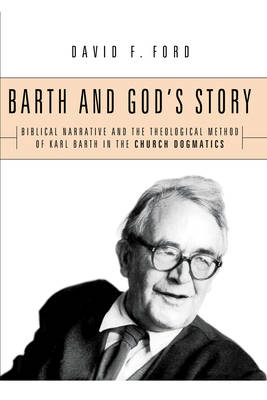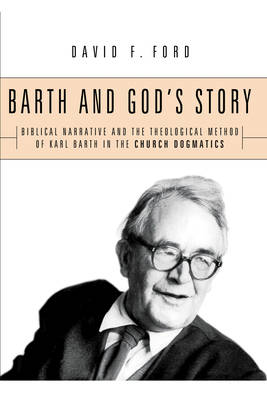
- Retrait gratuit dans votre magasin Club
- 7.000.000 titres dans notre catalogue
- Payer en toute sécurité
- Toujours un magasin près de chez vous
- Retrait gratuit dans votre magasin Club
- 7.000.0000 titres dans notre catalogue
- Payer en toute sécurité
- Toujours un magasin près de chez vous
Barth and God's Story
Biblical Narrative and the Theological Method of Karl Barth in the Church Dogmatics
David F Ford
Livre broché | Anglais
42,95 €
+ 85 points
Description
Karl Barth interpreted the Bible in a creative and controversial way. One key to his method is his handling of biblical narratives. He argues from them to his theological conclusions in ways that have many parallels with the literary criticism of realistic novels. The role of the resurrection of Jesus in the Gospel story is perhaps the most fascinating question, and Barth produces an original and, in literary terms, extremely sensitive understanding of it. The biblical narratives are also vital for his doctrine of God. Overall, there is in the Church Dogmatics a Christian spirituality that is based on reading the Bible in a particular way. Narrative has been one of the richest themes in recent Christian theology. Its importance in all religions and cultures is obvious, and one of the most powerful factors in the way the Bible crosses barriers of time and place is its inclusion of so many good stories. But what happens when these stories are rigorously examined and reflected upon in theology? What is the relationship of theological to literary interpretation? How can stories be central to a theology while keeping their integrity as vivid, universal literature? There is no general answer to such questions. I have taken one modern theologian of international significance, Karl Barth. By concentrating on that part of his method which has to do with narrative, I have attempted both to offer a new assessment of his achievement and also to open a door into his works that will help to make them accessible to those of many backgrounds and cultures with a keen interest in narrative and literature. --from the Preface
Spécifications
Parties prenantes
- Auteur(s) :
- Editeur:
Contenu
- Nombre de pages :
- 194
- Langue:
- Anglais
Caractéristiques
- EAN:
- 9781606080566
- Date de parution :
- 01-07-08
- Format:
- Livre broché
- Format numérique:
- Trade paperback (VS)
- Dimensions :
- 163 mm x 213 mm
- Poids :
- 294 g

Les avis
Nous publions uniquement les avis qui respectent les conditions requises. Consultez nos conditions pour les avis.






